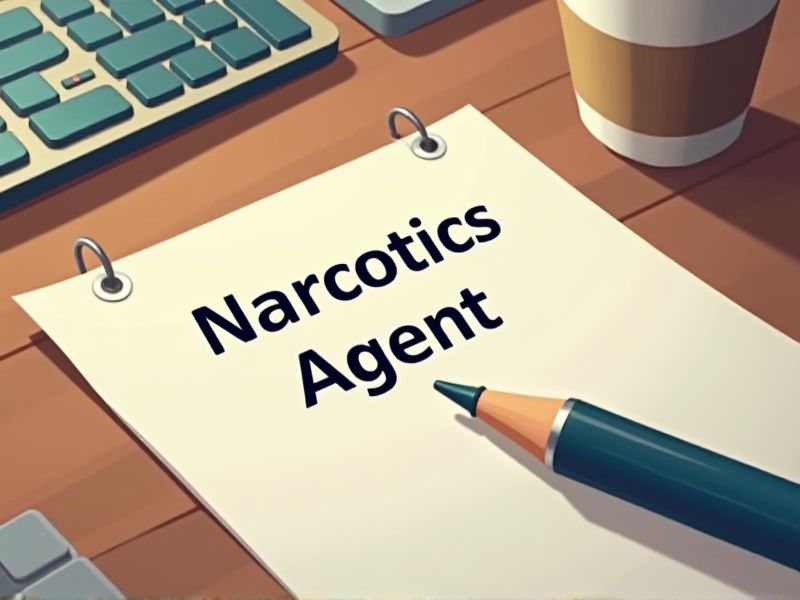
Narcotics agents operate in a high-stakes environment where precision and credibility are crucial. Certain certifications enhance their ability to effectively investigate drug-related crimes and ensure adherence to legal protocols. Comprehensive knowledge and specialized skills gained through these certifications enable agents to tackle complex scenarios involving illicit substances. Here are some important certifications one may need to become a narcotics agent.
Basic Law Enforcement Certification
Basic Law Enforcement Certification ensures narcotics agents possess fundamental policing skills necessary for safe and effective law enforcement activities. Certification provides agents with knowledge of legal protocols, reducing risks of procedural errors during drug-related investigations. It aids in building a solid foundation for advanced training specific to narcotics operations, enhancing investigative techniques. Certification helps establish professional credibility and public trust, crucial for collaborative efforts with other law enforcement agencies.
Narcotics Investigations Certification
Narcotics Investigations Certification ensures agents are equipped with the required knowledge to effectively handle complex drug cases. The certification provides training in the latest detection and investigation techniques, which enhances success rates in apprehending offenders. It also standardizes practices across agencies, fostering better inter-agency collaboration. Certification often leads to improved resource allocation, as certified agents are perceived as more competent and reliable in addressing drug-related issues.
Advanced Tactical Operations Certification
Advanced Tactical Operations Certification equips narcotics agents with specialized skills to safely handle high-risk situations. This certification enhances agents' strategic planning abilities during drug raids, minimizing risks to both officers and civilians involved. It also provides comprehensive training in handling advanced weaponry and equipment specific to modern narcotics operations. Agencies increasingly require this certification to ensure compliance with evolving legal and operational standards in narcotics enforcement.
Firearms Proficiency Certification
Firearms Proficiency Certification ensures that narcotics agents can safely and effectively use their weapons in high-risk operations. Proficiency in firearms is crucial for self-defense and the protection of the public during dangerous drug enforcement scenarios. This certification provides agents with the necessary skills to handle potential armed confrontations with drug traffickers. Confidence and competence in firearm usage minimize the risk of accidental discharges and related casualties.
Defensive Tactics Certification
Narcotics agents frequently encounter high-risk situations where they must protect themselves and others; Defensive Tactics Certification prepares them by equipping them with the skills to handle confrontations safely. This certification ensures agents are versed in non-lethal control techniques, reducing the likelihood of excessive force and related legal consequences. The intensive training can foster decision-making under stress, which is critical when dealing with unpredictable environments common in narcotics operations. Studies show that well-trained agents are more confident in executing their duties, enhancing operational effectiveness and safety.
Emergency Medical Response Certification
Emergency Medical Response Certification equips narcotics agents with essential skills to provide immediate medical care during critical incidents. High-risk situations in narcotics operations often involve overdoses or violent encounters, necessitating prompt medical intervention. Having certified agents enhances the overall safety and effectiveness of operations, potentially saving lives. Certification fosters greater agency preparedness, ensuring agents can handle emergencies until professional medical help arrives.
Forensic Drug Analysis Certification
Forensic Drug Analysis Certification is crucial for a narcotics agent because it equips them with the skills to accurately identify illicit substances. This certification ensures agents can provide credible evidence that holds up in court, enhancing the prosecution's case. It enables agents to stay updated with evolving drug trends and technologies, which optimizes their effectiveness in the field. Certification also fosters a standardized approach across investigations, promoting consistency and reliability.
Cybercrime Investigations Certification
Cybercrime continues to intersect with narcotics trafficking due to the increasing use of encrypted communication and cryptocurrency transactions, complicating investigations. Understanding digital forensic techniques and cybercrime tools equips a narcotics agent with necessary skills to trace and secure digital evidence effectively. The certification provides insights into cyber trails left by traffickers, enhancing the ability to dismantle complex networks. Increased proficiency in cybercrime helps agents adapt to evolving threats, improving overall success rates in narcotics cases.
Crisis Intervention Training Certification
Narcotics agents frequently encounter high-stress situations involving individuals under the influence, triggering unpredictable or volatile behavior. Crisis Intervention Training (CIT) equips agents with de-escalation techniques, reducing the potential for violence and misuse of force. CIT coursework also fosters better communication skills, essential for building trust and obtaining cooperation during interactions with affected individuals. Proper CIT certification can decrease both the risk of harm to the agent and potential legal liabilities for the agency.
Intelligence Analysis Certification
Intelligence Analysis Certification equips narcotics agents with critical skills in data interpretation and trend forecasting. This certification enhances their ability to identify and track drug trafficking patterns effectively. Trained analysts can significantly improve the success rates of operations by predicting cartel movements and strategies. The certification also fosters collaboration with other agencies by ensuring a common understanding of intelligence techniques and processes.
Summary
You can expect enhanced credibility and expertise when obtaining certifications as a Narcotics Agent. These certifications often lead to improved investigative techniques and access to advanced resources. Such qualifications typically result in increased effectiveness in targeting narcotics networks. Enhanced skills and knowledge generally contribute to career advancement and professional recognition.
